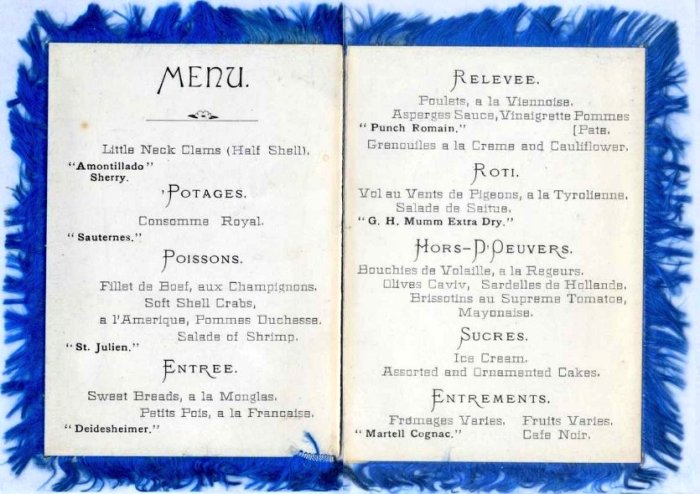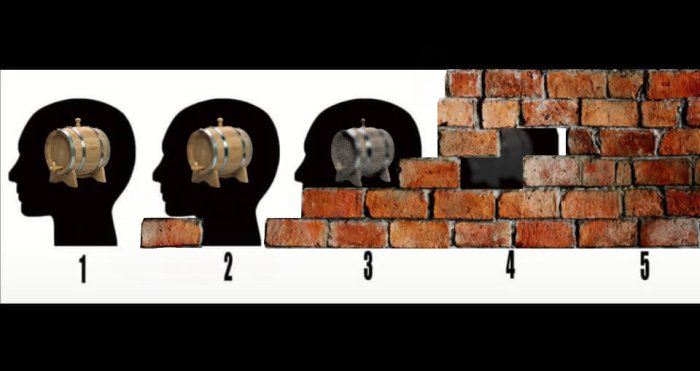Examples of verbal irony in the cask of amontillado – As “Examples of Verbal Irony in ‘The Cask of Amontillado'” takes center stage, this opening passage beckons readers into a world crafted with scholarly authority, ensuring a reading experience that is both absorbing and distinctly original.
This discourse delves into the intricate tapestry of verbal irony woven throughout Edgar Allan Poe’s haunting tale, exploring its profound impact on the narrative’s tone, characterization, and symbolic undercurrents.
Identify Instances of Verbal Irony

Edgar Allan Poe’s “The Cask of Amontillado” is renowned for its use of verbal irony, a literary device in which a speaker expresses the opposite of what they truly mean. Montresor, the narrator and protagonist, employs this technique throughout the story to convey his disdain and hostility towards Fortunato, his supposed friend.
One of the most notable instances of verbal irony occurs when Montresor assures Fortunato that he is “lucky” to have met him, despite the fact that he has lured him into the catacombs with the sole intention of killing him.
- “…you are very lucky to meet me.”
- “…the cough is a mere nothing; it will not kill me. I shall not die of a cough.”
These statements reveal Montresor’s true feelings towards Fortunato, which are far from the jovial and friendly demeanor he pretends to have.
Analyze the Dramatic Effect of Irony

The use of verbal irony in “The Cask of Amontillado” creates a palpable sense of tension and suspense. The reader is aware of Montresor’s true intentions, but Fortunato remains oblivious, creating a dramatic irony that keeps the reader on edge.
Moreover, the irony highlights Montresor’s complex and sinister character. He is able to maintain a facade of politeness and hospitality while secretly plotting Fortunato’s demise. This contrast between his outward appearance and his inner thoughts creates a chilling effect that adds to the story’s overall atmosphere of dread.
Explore the Symbolic Meaning of Irony: Examples Of Verbal Irony In The Cask Of Amontillado

Beyond its dramatic impact, the verbal irony in “The Cask of Amontillado” also carries symbolic significance. Montresor’s ironic statements can be seen as a reflection of the deeper themes and motifs of the story.
For instance, Montresor’s repeated references to Fortunato’s “cough” can be interpreted as a symbol of his own mortality. Despite his claims that the cough is “nothing,” Montresor is aware of his own impending death and seeks revenge against Fortunato as a way of asserting his own power over the inevitable.
Compare and Contrast Irony in “The Cask of Amontillado” with Other Works
The use of verbal irony in “The Cask of Amontillado” is not unique to this particular work. Many other literary works employ this technique to create similar effects.
One notable example is William Shakespeare’s “Hamlet.” In the play, Hamlet frequently employs verbal irony to express his contempt for the corrupt court and his desire for revenge. Like Montresor, Hamlet’s ironic statements create a sense of tension and suspense while also revealing his complex and troubled character.
Top FAQs
What is the significance of verbal irony in “The Cask of Amontillado”?
Verbal irony in “The Cask of Amontillado” serves to heighten tension, expose the protagonist’s duplicity, and illuminate the story’s themes of revenge and retribution.
How does irony contribute to the characterization of Montresor?
Montresor’s ironic remarks reveal his cunning, malice, and lack of remorse, painting a portrait of a complex and deeply flawed protagonist.
What are some examples of verbal irony in the story?
One instance occurs when Montresor tells Fortunato, “My dear Fortunato, you are luckily met. What, shall we go look at your last Amontillado?” despite having no intention of sharing the wine.
